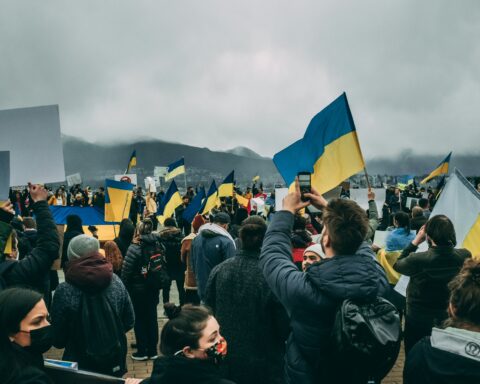I had thought the fever in Ukraine had spiked at last — but it rages on.
The Crimean Parliament’s Thursday vote for a referendum by March 16 on joining Russia and the Ukrainian Rada’s vote on pursuing membership in NATO got right to the heart of the crisis: security, and the accommodation (or not) of Russia’s obvious and abiding security interest in Crimea.
Meanwhile, Moscow made it clear again that it does not recognize the Kyiv government (Russia wouldn’t let its Foreign Minister, Sergei Lavrov, meet his Kyiv counterpart, Andrii Deshchytsia, in Paris Wednesday). It also signalled it will act to discredit the new authorities — using tactics like the leak of a recording of a cellphone call made some weeks ago in which Estonian Foreign Minister Urmas Paet told EU’s foreign affairs chief Catherine Ashton of evidence that the snipers at the Maidan had worked not for Yanukovych, but for someone in the current government.
This crisis is not now (if it ever was) about trade. It will not be settled by sanctions, even if the West gets together on a credible threat of truly punishing sanctions — highly unlikely, given the massive collateral damage such an act would afflict on all the economies involved, including that of Ukraine.
Ukrainians’ need for aid is immediate and massive. They will be doing without Russia’s $15 billion and facing a possible 40 per cent hike in their Russian gas bills at the end of this month. They’ll also be at the mercy of the IMF — which never saw a politically sensitive social benefit it didn’t insist a struggling state cut.
The IMF’s usual prescriptions would be nonsense in this case. For a new Kyiv government facing elections, they would be, as Lloyd Axworthy has pointed out, a “sure recipe for defeat.” Get ready for ironies, though: A good chunk of the Western aid cash will flow straight to Russia, to pay down debt and meet the rising gas bills.
On the crux of the issue — Ukrainian NATO membership — Putin has made two points. First, Russia controls Crimea, which will not join NATO. Indeed, it may in ten days vote to join Russia. And if Crimea does go through a democratic referendum, Putin will no doubt declare the 1994 Budapest Memorandum — which assured Ukraine of protection from threats or use of force against its territorial integrity and political independence in exchange for giving up its nuclear weapons — to be moot.
In short, no one is going to push Russia out. Despite all our sustained bellicosity, with Canada playing the Last Cold Warrior Standing, it would take months for the U.S. Navy to tow Protecteur to Sevastopol.
Second, as Putin demonstrated by running up the Russian flag in Donetsk for a day and then running it down (point made without a shot fired), Russia is quite capable of destabilizing eastern Ukraine — and the Kremlin would not hesitate to do so if Ukraine were to join NATO. We’ve been warned.
NATO is not a knitting club — it is a military alliance that includes nuclear powers. Like any great power, Russia — under Putin or anyone else — would not abide such hostility on its borders. It will not rent the base for its Black Sea Fleet from NATO. Ukraine is about as free to adopt a security policy hostile to Moscow as we are to do the same thing to Washington. Of course our sovereignty is infringed upon. Welcome to the real world.
No intelligent observer can claim to be surprised by these facts. And no matter how often our government evokes Sudetenland, the Nazis and the Second World War, accommodating ourselves to reality is not “appeasement.” It’s common sense.
NATO leaders meet Friday. Last week, NATO Secretary General Anders Fogh Rasmussen described Ukraine as a “friend,” a partner — not a member. There will be much angst in the orchestra, but I doubt the tune will change. We must hope Ukrainians hear and get the point. It is not wise to bait a bear.
For Canada and other stubborn boosters of NATO expansion (such as the Poles and Balts), the chickens now come home to roost. The conclusion is hard to escape: The hopes, expectations and fears we helped foster misled our Ukrainian friends into underestimating the risks in picking a fight with Russia, which Kyiv has now done.
The bitter irony remains that no country on earth has more interest than Ukraine in good East-West relations — and that no country on earth has done less than its friend Canada to promote them.
Christopher Westdal is a consultant, corporate director and occasional commentator on international affairs. A former Canadian diplomat, he was ambassador to Russia (2003-06), the UN in Geneva and the Conference on Disarmament (1999-2003), Ukraine (1996-98), South Africa (1991-93) and Bangladesh and Burma (1982-85). In Ottawa, he worked in Foreign Affairs, CIDA and the Privy Council Office. Mr. Westdal lives in Chelsea, Quebec.
Re-published with permission.




